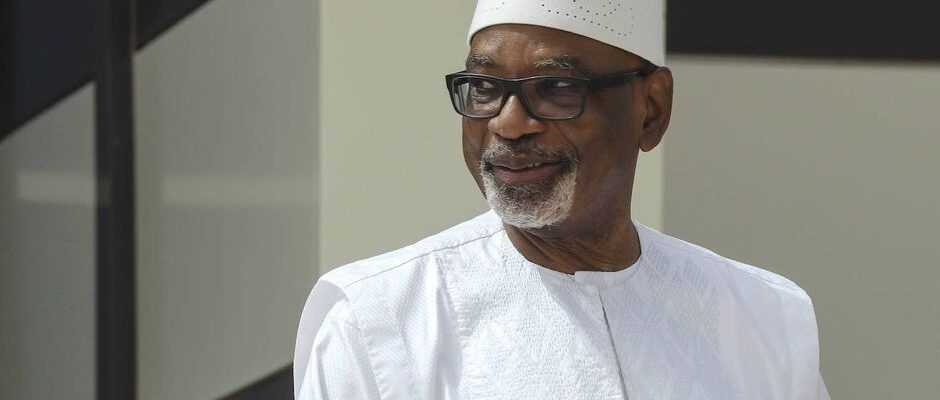Begun in 2013, the presidency of Ibrahim Boubacar Keïta is widely associated with the descent into hell of his country.
Former Malian President Ibrahim Boubacar Keïta died Sunday in Bamako at the age of 76, a year and a half after being overthrown by the military who are today defying part of the international community. Begun in 2013, the presidency of IBK – as it was commonly called – largely coincided with the turmoil in which Mali has been caught since the previous year. Mr. Keïta had been overthrown in August 2020 by soldiers who, after a second coup in May 2021, invoked the evils accumulated during the IBK era to plan to continue to lead the country for several more years.
“President IBK died this morning at 9:00 a.m. (GMT and local) at his home” in the capital, where he lived in retirement, away from public life, a member of his family told AFP. This information was confirmed by several members of his family and those around him. The residence of the former president, located in the south-west of the capital, was the scene on Sunday afternoon of an intense ballet of cars of personalities who came to offer their condolences. Police officers guarded the entrances, AFP journalists noted.
“
Long illness
“
The cause of death was not specified. The death occurred “following a long illness”, simply indicated in a press release the Malian transitional government, led by Prime Minister Choguel Kokalla Maïga who was minister of IBK before becoming his opponent. The transitional government, in this text signed by the Minister of Territorial Administration, Colonel Abdoulaye Maïga, hailed “the memory of the illustrious deceased” and announced that information on the funeral ceremony “will be the subject of a subsequent release”.
The head of Malian diplomacy Abdoulaye Diop said he was “saddened to learn of the disappearance of former president Ibrahim Boubacar Keïta” and bowed, in a message on Twitter, “with great emotion in front of his memory”. The president of neighboring Senegal, Macky Sall, said on Twitter that he was “pained to learn of the death” of Mr. Keïta. The ex-president of Niger Mahamadou Issoufou, comrade of the deceased within the Socialist International, hailed “a cultured man, a great patriot and a pan-Africanist”.
Ousted from power
Ibrahim Boubacar Keïta had been ousted from power after months of mobilization within a population exasperated by violence of all kinds – jihadist, community or villainous -, by the bankruptcy of state services and by a reputedly galloping corruption. He disappears while the colonels who overthrew him vow to remedy the ills of the country and claim to need several years to achieve this and to be able to keep their initial promise to return power to civilians.
The junta having reneged on its commitment to organize presidential and legislative elections on February 27 to bring civilians back to the head of the country, the Economic Community of West African States (ECOWAS) and the Economic and West African monetary union (UEMOA) took on January 16 a battery of vigorous economic and diplomatic measures against Mali. The country has already been plunged into a serious security and political crisis since the outbreak of independence and jihadist insurgencies in 2012.
Mr. Keïta, who claimed to be from the left, had a meteoric rise under Alpha Oumar Konaré, the first president (1992-2002) of Mali’s democratic era. In particular, he was its Prime Minister from 1994 to 2000. An unfortunate contender in the 2002 presidential election, he had his revenge in September 2013 by gaining access to the Koulouba Palace, seat of the Malian presidency in Bamako. He will be re-elected in 2018 against Soumaïla Cissé, then leader of the opposition and who died in December 2020 of Covid-19.
Any reproduction prohibited
